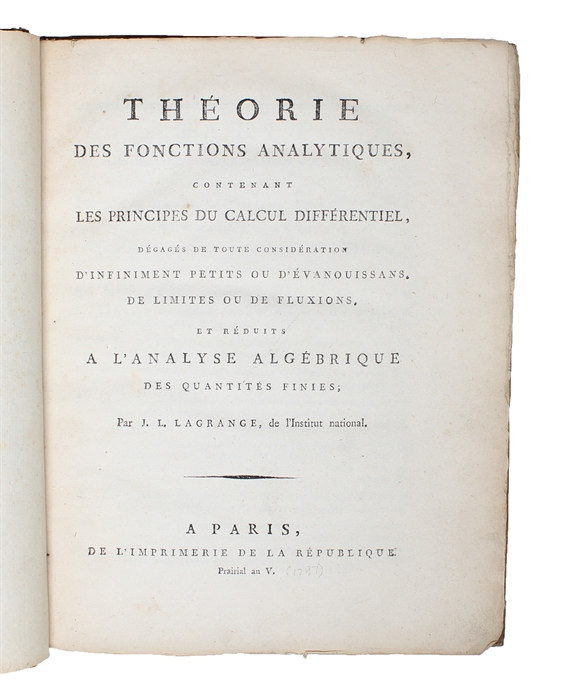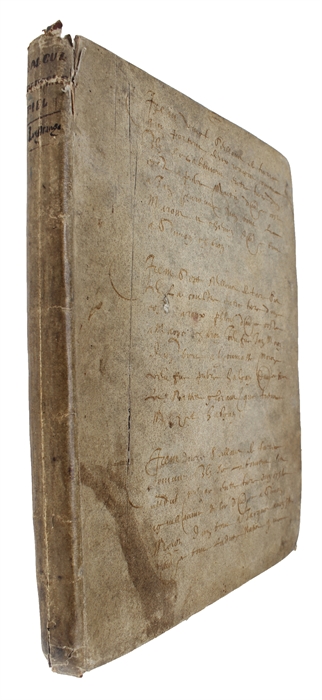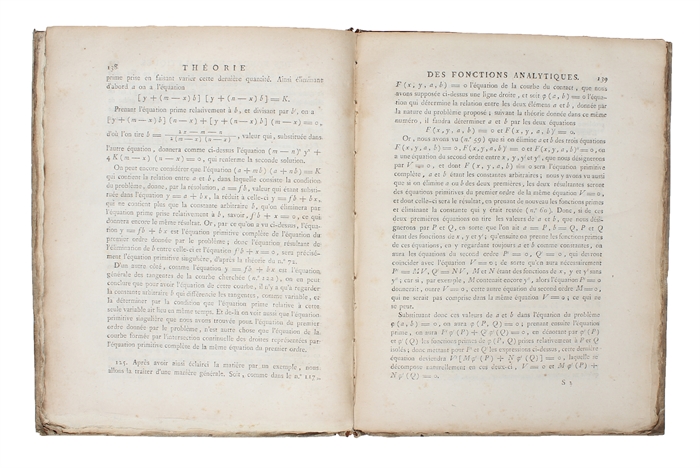FOUNDATION OF ANALYSIS
LAGRANGE, JOSEPH LOUIS.
Théorie des fonctions analytiques, contenant les principes du calcul différentiel, dégagés de toute considération d'infiniment petits ou d'évanouissans, de limites ou de fluxions et réduits à l'analyse algébrique des quantités finies.
Paris, De L'Imprimerie de la République, An V (1797).
4to. Uncut and partially unopened. Contemporary manuscript-binding. Provenance: With the exlibris of Stillman Drake - one of the most renown Galileo scholars. Some light brown spotting through out. Otherwise a very good copy. (4),VIII,276 pp.
First edition, first printing. Several bibliographies mention that there are two issues of the first edition, with no priority established - one with 277 numbered pages and another with 276 numbered pages which compromises Vol. III of the ninth cahier of the 'Journal de l'Ecole Polytechnique' (see Norman 1258 for example). However, the second mentioned printing was first published in 1801 (See Prof. Craig G. Fraser's article in "Landmark Writings in Western Mathematics 1640-1940", pp. 258-276).
Lagrange is the great formulizer of his time. In his masterpiece 'Méchanique Analytique' from 1788 he freed Newtonian mechanics from synthetic and geometrical reasoning by reducing the theory of mechanics and the art of solving problems in that field to the mere solution of general formulas. In this work, the 'Théorie des fonctions analytiques', Lagrange attempted to give calculus an algebraic foundation and avoid the employment of infinitely small quantities.
In this work Lagrange developed a systematic foundation of the calculus. Throughout the eighteenth century a critical attitude had developed both within mathematics and within general scientific culture. Bishop George Berkeley had already in 1734 in his work 'The Analyst' called attention to what he perceived as logical weaknesses in the reasonings of the calculus arising from the employment of infinitely small quantities. And by the end of the century a growing interest in the foundations of analysis was reflected in the decisions of the academies of Berluin and Saint Petersburg to devote prize competitions to the metaphysics of the calculus and the nature of the infinite. In
Original contributions: Lagrange's conception of theorem-proving in analysis; his derivation of what is today called the Lagrange remainder in the Taylor expansion of a function; his formulation of the multipiler rule in the calculus of variations; and his account of sufficiency questions in the calculus of variations.
Barchas 1198. Riccardi I (2), 3. Norman 1258. Honeyman 1881, Stanitz ,
Order-nr.: 35989



